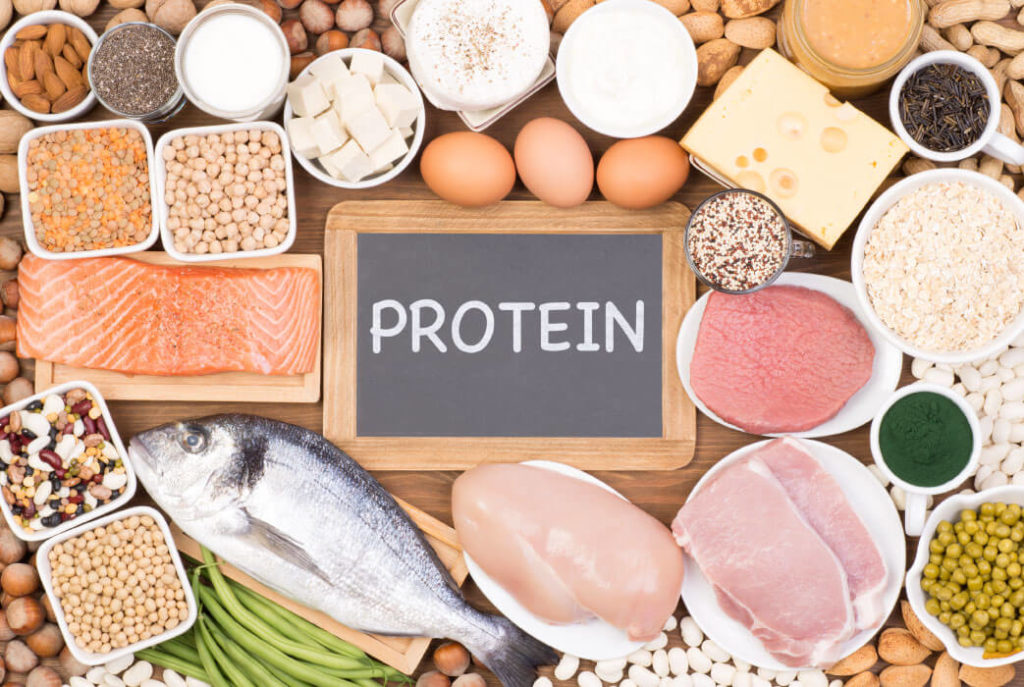
Protein is most often associated with muscle mass. While protein does help build muscle, this macronutrient can do more than just help with weightlifting. More than 10,000 proteins build the human body and keep it functioning. Protein is found in bones, muscles, hair, skin, and many other parts of the body. Understanding the benefits and best sources of protein can help you live a healthier and more productive life.
Protein Benefits
The benefits of protein are many. Many people know that eating protein can lead to increased muscle mass and lean tissue. However, protein can improve mental and physical health in many other ways. Consuming the recommended amount of protein can help you stay healthy while encouraging your body to function as it should.
Protein helps transport oxygen throughout the body and plays a role in energy supply. It can also help protect against disease and infection as it helps create new cells and keep existing cells healthy.
The following additional health benefits of protein are:
- Consuming protein can help curb hunger and reduce your total calorie intake, keeping you feeling full longer.
- Protein helps maintain bone mass as you age. This reduces the risk of fractures and osteoporosis.
- Foods high in protein can increase metabolism and increase calorie expenditure during exercise.
- Higher protein consumption is associated with lower blood pressure.
- Protein is the building block of organs and tissues throughout the body. Increasing protein intake can help your body recover from injury more quickly.
- Increased protein intake is also associated with improved sleep quality, better brain function, and more.
What is My Ideal Protein Intake?
The average adult should consume about seven grams of protein for every 20 pounds of body weight. A 200-pound person should consume about 70 grams of protein per day.
A person’s adequate protein intake can range from 10% to 35% of their daily calorie intake. However, the amount of protein your body needs may vary depending on the type and intensity of exercise you do during the day. People over 40 may need more protein as they start to lose muscle mass.
Excellent Sources of Protein
It’s hard to reap the benefits of increasing protein consumption if you don’t know where to find it. The best sources of protein are poultry, fish, lean pork or beef, eggs, tofu, and dairy products. Protein is also found in many plant sources such as beans, nuts, seeds, and whole grains such as corn, rice, and oats.
Most animal protein sources are considered complete proteins because they provide more amino acids, but plant sources such as soy and quinoa are also complete proteins. Combining a large amount of plant protein with a small amount of animal (or whole plant) protein can ensure you are getting enough amino acids.
Protein is also found in some sources of processed meat — such as bacon and sausage — but experts recommend limiting protein intake from processed foods.
Common Myths About Protein
There are many myths that arise about protein and it can be difficult to determine which one is true. Here are some common myths you may have heard about protein consumption:
- More protein is always better: The human body cannot absorb more than 25 to 30 grams of protein per meal. If you eat more, the excess protein will likely be stored as fat.
- All proteins are good proteins: Not all proteins provide the same benefits for your body and mind. Plant proteins do not always provide enough essential amino acids. Vegetarians and vegans should consume complete protein from foods such as soy or quinoa along with other plant proteins.
- Protein always helps you with weight loss: Lean protein can help reduce appetite and burn fat faster. However, eating too much lean protein can still lead to weight gain. A balanced diet and exercise remain the key to weight loss.
Understanding protein and how best to consume it can improve your overall health and well-being. For more information on Protein Power, see the companion resource.
AUTHOR BIO: Dr. Myur S. Srikanth is a board-certified bariatric and cosmetic surgeon at the Center for Weight Loss Surgery. He has been performing bariatric surgery exclusively since 2000 and has performed over 4,000 weight loss surgeries. Dr. Srikanth performs nearly every operation that is currently available to treat obesity.



